Financiers/Fundraisers
Uzbek-born Abror Habibov is an alleged New York-based financier and facilitator for ISIS.Marc Santora and Nate Schweber, “In Brooklyn, eager to join ISIS, if only his mother would return his passport,” New York Times, February 26, 2015, http://www.nytimes.com/2015/02/27/nyregion/isis-plot-brooklyn-men.html. Habibov reportedly financed and facilitated would-be foreign fighters Akhror Saidakhmetov and Abdurasul Juraboev, who in February 2015 attempted to travel to Syria to join ISIS.Marc Santora and Nate Schweber, “In Brooklyn, eager to join ISIS, if only his mother would return his passport,” New York Times, February 26, 2015, http://www.nytimes.com/2015/02/27/nyregion/isis-plot-brooklyn-men.html. Habibov is also believed to have had a contact in Turkey who made regular trips to Syria.“UNITED STATES OF AMERICA against ABDURASUL HASANOVICH JURABOEV, also known as “Abdulloh Ibn Hasan,” AKHROR SAIDAKHMETOV, and ABROR HABIBOV, Defendants.,” United States Department of Justice, February 24, 2015,, http://www.justice.gov/file/344761/download. Saidakhmetov expected Habibov to put him in touch with this contact to help him cross over to Syria from Turkey.“UNITED STATES OF AMERICA against ABDURASUL HASANOVICH JURABOEV, also known as “Abdulloh Ibn Hasan,” AKHROR SAIDAKHMETOV, and ABROR HABIBOV, Defendants.,” United States Department of Justice, February 24, 2015,, http://www.justice.gov/file/344761/download.
Habibov was arrested in Jacksonville, Florida, on February 25, 2015, and was ordered held without bail.“Who is terror suspect Abror Habibov?” First Coast News, February 25, 2015, http://www.firstcoastnews.com/story/news/2015/02/25/who-is-abror-habibov/24009399/. According to CBS, he faces “charges of conspiracy to provide material support to terrorists.”“FBI: 3 Brooklyn men arrested for attempting to join ISIS, plotting terror attacks in U.S,” CBS, February 15th 2015, http://newyork.cbslocal.com/2015/02/25/fbi-3-brooklyn-men-arrested-for-attempting-to-join-isis/. On March 13, he pled not guilty in court.“4 men charged in alleged plot to help ISIS plead not guilty in Brooklyn,” CBS, April 8, 2015, http://newyork.cbslocal.com/2015/04/08/4-men-charged-in-plot-to-help-isis-plead-not-guilty-in-brooklyn/.
Habibov worked with Dilkhayot Kasimov, who assisted him in funding Saidakhmetov and Juraboev’s trips.“Fourth Brooklyn man charged in plot to join ISIL,” Al Jazeera, April 6, 2015, http://america.aljazeera.com/articles/2015/4/6/Fourth-Brooklyn-man-charged-plot-join-ISIL.html. Together they raised $1,600 for the two foreign fighters.“Fourth Brooklyn man charged in plot to join ISIL,” Al Jazeera, April 6, 2015, http://america.aljazeera.com/articles/2015/4/6/Fourth-Brooklyn-man-charged-plot-join-ISIL.html. The U.S. Department of Justice believes that they raised these funds by “collecting…from multiple individuals.”“Fourth Brooklyn, New York, resident charged with attempt and conspiracy to provide material support to ISIL,” United States Department of Justice, April 6, 2015, http://www.justice.gov/opa/pr/fourth-brooklyn-new-york-resident-charged-attempt-and-conspiracy-provide-material-support.
To his ex-wife, Lakeisha Bailey, Habibov never appeared to be religious or display any extremist ideologies.Thomas Barrabi, “Alleged ISIS plotter Abror Habibov divorced wife Lakeisha Bailey before arrest on terrorism charges, report says,” International Business Times, February 27, 2015, http://www.ibtimes.com/alleged-isis-plotter-abror-habibov-divorced-wife-lakeisha-bailey-arrest-terrorism-1830560. According to the International Business Times, Bailey said that she “never knew him as a Muslim,” and speculates that he must have “[changed] over time.”Thomas Barrabi, “Alleged ISIS plotter Abror Habibov divorced wifei Lakeisha Bailey before arrest on terrorism charges, report says,” International Business Times, February 27, 2015, http://www.ibtimes.com/alleged-isis-plotter-abror-habibov-divorced-wife-lakeisha-bailey-arrest-terrorism-1830560. However, president of the Vantadosh Uzbek-American Federation Farhod Sulton described Habibov as “kind of lost” and as a “blind follower,” according to the New York Times.Marc Santora and Nate Schweber, “In Brooklyn, eager to join ISIS, if only his mother would return his passport,” New York Times, February 26, 2015, http://www.nytimes.com/2015/02/27/nyregion/isis-plot-brooklyn-men.html. Sulton recalled, “he was so eager to learn Islam…I remember warning him about his thoughts and… his understanding of Islamic principles.”Cris Barrish, Esteban Parra, and Jeff Montgomery, “FBI: mall kiosk owner financed Islamic State plot,” USA Today, February 27, 2015, http://www.usatoday.com/story/news/nation/2015/02/27/fbi-mall-kiosk-owner-financed-isis-plot/24107959/.
The 30-year-old moved to the United States legally in 2006, but remained in the country illegally after his visa expired.Marc Santora and Nate Schweber, “In Brooklyn, eager to join ISIS, if only his mother would return his passport,” New York Times, February 26, 2015, http://www.nytimes.com/2015/02/27/nyregion/isis-plot-brooklyn-men.html. He owns kiosks throughout the East Coast that sell kitchenware and repair cell phones.Catherine Shoichet, Ed Payne, and Ray Sanchez, “3 men try to join ISIS: here's what we know,” CNN, February 26, 2015, http://www.cnn.com/2015/02/26/us/new-york-terror-plot-suspects/.

Abu Qatada is a U.S.- and U.N.-designated cleric and propagandist for al-Qaeda.“TREASURY DEPARTMENT RELEASES LIST OF 39 ADDITIONAL SPECIALLY DESIGNATED GLOBAL TERRORISTS,” U.S. Department of the Treasury, October 12, 2001, http://www.treasury.gov/press-center/press-releases/Pages/po689.aspx; “QDi.031 OMAR MAHMOUD UTHMAN,” U.N. Security Council, October 17, 2001, http://www.un.org/sc/committees/1267/NSQDi031E.shtml; Fabio Merone, “Salafism in Tunisia: An Interview with a Member of Ansar Al-Sharia,” Jadaliyya, April 11, 2013, http://www.jadaliyya.com/pages/index/11166/salafism-in-tunisia_an-interview-with-a-member-of-. He was at one point considered Osama bin Laden’s “spiritual ambassador in Europe,” according to the United Nations.“QDi.031 OMAR MAHMOUD UTHMAN,” United Nations Security Council, March 9, 2009, https://www.un.org/sc/suborg/en/sanctions/1267/aq_sanctions_list/summaries/individual/omar-mahmoud-uthman. Qatada, whose real name is Omar Mahmoud Mohammad Othman, is a Jordanian of Palestinian descent accused of spreading radicalism and influencing jihadists such as the September 11 hijackers.John F. Burns, “After Legal Marathon, Britain Deports Terrorist Suspect,” New York Times, July 6, 2013, http://www.nytimes.com/2013/07/07/world/europe/after-legal-marathon-britain-deports-terrorist-suspect.html.
The United Nations accuses Qatada of encouraging “the commission, preparation and instigation of acts of terrorism.”“QDi.031 OMAR MAHMOUD UTHMAN,” United Nations Security Council, March 9, 2009, https://www.un.org/sc/suborg/en/sanctions/1267/aq_sanctions_list/summaries/individual/omar-mahmoud-uthman. The United Nations further accuses Qatada of fundraising for al-Qaeda-related groups.“QDi.031 OMAR MAHMOUD UTHMAN,” United Nations Security Council, March 9, 2009, https://www.un.org/sc/suborg/en/sanctions/1267/aq_sanctions_list/summaries/individual/omar-mahmoud-uthman. After an eight-year battle in British courts to avoid deportation, Qatada returned to Jordan in 2013. Two courts found him innocent of terrorism charges in 2014.Karin Laub, “Jordan acquits radical cleric of terrorism charges,” Associated Press, September 24, 2014, http://bigstory.ap.org/article/fd3b40debd1347968957768f7e0c8456/jordan-acquits-radical-cleric-terrorism-charges. He remains free, presumably in Jordan.
British security services have accused Qatada of granting religious legitimacy to people who want to “further the aims of extreme Islamism and to engage in terrorist attacks.”Dominic Casciani, “Profile: Abu Qatada,” BBC News, June 26, 2014, http://www.bbc.com/news/uk-16584923. After September 11, 2001, authorities found copies of Qatada’s writings in the German apartment of lead hijacker Mohamed Atta.John F. Burns, “Britain Releases Militant Preacher,” New York Times, February 13, 2012, http://www.nytimes.com/2012/02/14/world/europe/abu-qatada-release.html. Qatada also stands accused of organizing military training trips to Afghanistan, funding the Iraq- and Syria-based terror group Ansar al-Islam, and encouraging Ansar al-Islam to strengthen its ties with al-Qaeda.“QDi.031 OMAR MAHMOUD UTHMAN,” United Nations Security Council, March 9, 2009, https://www.un.org/sc/suborg/en/sanctions/1267/aq_sanctions_list/summaries/individual/omar-mahmoud-uthman. A Spanish judge once described him as bin Laden’s “right-hand man in Europe.”John F. Burns, “After Legal Marathon, Britain Deports Terrorist Suspect,” New York Times, July 6, 2013, http://www.nytimes.com/2013/07/07/world/europe/after-legal-marathon-britain-deports-terrorist-suspect.html.
Qatada sought asylum in Great Britain in 1993.Alan Cowell, “Jordanian Court Acquits Islamic Cleric in Terrorism Case,” New York Times, June 26, 2014, http://www.nytimes.com/2014/06/27/world/middleeast/abu-qatada-acquitted-of-terrorism-charges-in-jordan.html. In 1999, a Jordanian court convicted Qatada in absentia on terrorism charges and sentenced him to life in prison.“CASE OF OTHMAN (ABU QATADA) v. THE UNITED KINGDOM,” European Court of Human Rights, September 5, 2012, http://hudoc.echr.coe.int/sites/eng/pages/search.aspx?i=001-108629#{"itemid":["001-108629"]}. British authorities arrested him several times and sought his deportation. Beginning in 2005, Qatada began an eight-year fight against deportation. The cleric argued Jordanian authorities had tortured him and would employ evidence collected through torture.Alan Cowell, “Jordanian Court Acquits Islamic Cleric in Terrorism Case,” New York Times, June 26, 2014, http://www.nytimes.com/2014/06/27/world/middleeast/abu-qatada-acquitted-of-terrorism-charges-in-jordan.html.
Qatada’s continued presence in the United Kingdom reportedly made British Prime Minister David Cameron “sick to the stomach,” but British law forbade his deportation because of the possibility that Qatada would be tortured if returned to Jordan.John F. Burns, “After Legal Marathon, Britain Deports Terrorist Suspect,” New York Times, July 6, 2013, http://www.nytimes.com/2013/07/07/world/europe/after-legal-marathon-britain-deports-terrorist-suspect.html. Britain and Jordan signed an agreement in April 2013 guaranteeing Qatada a fair trial, which led to his deportation on July 7 that year.John F. Burns, “After Legal Marathon, Britain Deports Terrorist Suspect,” New York Times, July 6, 2013, http://www.nytimes.com/2013/07/07/world/europe/after-legal-marathon-britain-deports-terrorist-suspect.html. Qatada remained defiant during his trials, voicing support for Syrian rebels.Jamal Halaby, “Preacher in Jordan trial appeals to Syria jihadis,” Associated Press, December 24, 2013, http://bigstory.ap.org/article/radical-preacher-jordan-trial. At one point he directly questioned the judge’s fairness, and then told the prosecutor to “Shut up and sit down.”Jamal Halaby, “Preacher in Jordan trial appeals to Syria jihadis,” Associated Press, December 24, 2013, http://bigstory.ap.org/article/radical-preacher-jordan-trial. Nevertheless, two Jordanian courts acquitted Qatada in June and September 2014 of terrorism charges.Karin Laub, “Jordan acquits radical cleric of terrorism charges,” Associated Press, September 24, 2014, http://bigstory.ap.org/article/fd3b40debd1347968957768f7e0c8456/jordan-acquits-radical-cleric-terrorism-charges.
Qatada has been an outspoken critic of ISIS.Associated Press, “Radical Preacher Rebukes Extremists in Syria,” New York Times, January 30, 20144, http://www.nytimes.com/aponline/2014/01/30/world/middleeast/ap-ml-jordan-radical-preacher.html?partner=rss&emc=rss&_r=0. Some analysts believe the Jordanian government hopes to use anti-ISIS radical clerics like Qatada to turn jihadists away from the terror group.Peter Beaumont, “Abu Qatada verdict illustrates Jordan’s logic in fight against Islamic State,” Guardian (London), September 24, 2014, http://www.theguardian.com/world/2014/sep/24/abu-qatada-verdict-jordan-logic-islamic-state; Ariel Ben Solomon, “’Jordan playing with fire by backing extremists opposed to Islamic State,’” Jerusalem Post, December 15, 2014, http://www.jpost.com/Middle-East/Jordan-playing-with-fire-by-backing-extremists-opposed-to-Islamic-State-384659.
- Born as: Omar Mahmoud Mohammad OthmanKarin Laub, “Jordan acquits radical cleric of terrorism charges,” Associated Press, September 24, 2014, http://bigstory.ap.org/article/fd3b40debd1347968957768f7e0c8456/jordan-acquits-radical-cleric-terrorism-charges.
- Abu ‘Umr Takfiri“TREASURY DEPARTMENT RELEASES LIST OF 39 ADDITIONAL SPECIALLY DESIGNATED GLOBAL TERRORISTS,” U.S. Department of the Treasury, October 12, 2001, http://www.treasury.gov/press-center/press-releases/Pages/po689.aspx.
- Abu Ismail“TREASURY DEPARTMENT RELEASES LIST OF 39 ADDITIONAL SPECIALLY DESIGNATED GLOBAL TERRORISTS,” U.S. Department of the Treasury, October 12, 2001, http://www.treasury.gov/press-center/press-releases/Pages/po689.aspx.
- Abu Omar“TREASURY DEPARTMENT RELEASES LIST OF 39 ADDITIONAL SPECIALLY DESIGNATED GLOBAL TERRORISTS,” U.S. Department of the Treasury, October 12, 2001, http://www.treasury.gov/press-center/press-releases/Pages/po689.aspx.
- Abu Qatada al-Filistini“TREASURY DEPARTMENT RELEASES LIST OF 39 ADDITIONAL SPECIALLY DESIGNATED GLOBAL TERRORISTS,” U.S. Department of the Treasury, October 12, 2001, http://www.treasury.gov/press-center/press-releases/Pages/po689.aspx.
- Abu Umar“TREASURY DEPARTMENT RELEASES LIST OF 39 ADDITIONAL SPECIALLY DESIGNATED GLOBAL TERRORISTS,” U.S. Department of the Treasury, October 12, 2001, http://www.treasury.gov/press-center/press-releases/Pages/po689.aspx.
- Abu Umar Umar“TREASURY DEPARTMENT RELEASES LIST OF 39 ADDITIONAL SPECIALLY DESIGNATED GLOBAL TERRORISTS,” U.S. Department of the Treasury, October 12, 2001, http://www.treasury.gov/press-center/press-releases/Pages/po689.aspx.
- Al-Samman Uthman“TREASURY DEPARTMENT RELEASES LIST OF 39 ADDITIONAL SPECIALLY DESIGNATED GLOBAL TERRORISTS,” U.S. Department of the Treasury, October 12, 2001, http://www.treasury.gov/press-center/press-releases/Pages/po689.aspx.
- Omar Mahmoud Uthman“TREASURY DEPARTMENT RELEASES LIST OF 39 ADDITIONAL SPECIALLY DESIGNATED GLOBAL TERRORISTS,” U.S. Department of the Treasury, October 12, 2001, http://www.treasury.gov/press-center/press-releases/Pages/po689.aspx.
- Umar Uthman“TREASURY DEPARTMENT RELEASES LIST OF 39 ADDITIONAL SPECIALLY DESIGNATED GLOBAL TERRORISTS,” U.S. Department of the Treasury, October 12, 2001, http://www.treasury.gov/press-center/press-releases/Pages/po689.aspx.
United Nations
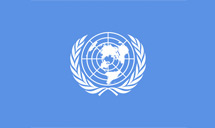 October 17, 2001
October 17, 2001The U.N. Security Council designated “Omar Mahmoud Uthman” as an associate of “Usama bin Laden and individuals and entities associated with him” on October 17, 2001.“QDi.031 OMAR MAHMOUD UTHMAN,” United Nations Security Council, March 9, 2009, https://www.un.org/sc/suborg/en/sanctions/1267/aq_sanctions_list/summaries/individual/omar-mahmoud-uthman.
United Kingdom
 October 17, 2001
October 17, 2001The United Kingdom added “Mahmoud Omar Uthman” to its Consolidated List of Financial Sanctions Targets on October 17, 2001.“Consolidated List of Financial Sanctions Targets in the UK,” U.K. HM Treasury, last updated June 2, 2015, http://hmt-sanctions.s3.amazonaws.com/sanctionsconlist.htm.
United States
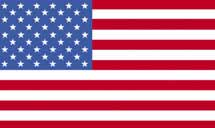 October 12, 2001
October 12, 2001The U.S. Department of the Treasury designated “Omar Mahmoud Uthman” a Specially Designated Global Terrorist on October 12, 2001.“TREASURY DEPARTMENT RELEASES LIST OF 39 ADDITIONAL SPECIALLY DESIGNATED GLOBAL TERRORISTS,” U.S. Department of the Treasury, October 12, 2001, http://www.treasury.gov/press-center/press-releases/Pages/po689.aspx.
Propagandist: U.S.- and U.N.-designated al-Qaeda cleric and propagandist accused of spreading radicalism and influencing jihadists such as the September 11 hijackers.
Appeared with Faisal at speaking engagements around London in the 1990s. Faisal later denounced Abu Qatada.

Ali Awni al-Harzi was a U.S.- and U.N.-designated recruiter and facilitator for Ansar al-Sharia in Tunisia (AST), and a battlefield commander for ISIS“Terrorist Designation of Ali Ouni Harzi,” U.S. Department of State, April 14, 2015, http://www.state.gov/r/pa/prs/ps/2015/04/240667.htm; Luis Martinez, “Key Suspect in Benghazi Attack Killed in US Airstrike in Iraq,” ABC News, June 22, 2015, http://abcnews.go.com/Politics/key-suspect-benghazi-attack-killed-us-airstrike-iraq/story?id=31953157. According to the U.S. State Department, al-Harzi was instrumental in smuggling weapons and explosives into Tunisia and facilitating the travel of AST fighters to Syria.“Terrorist Designation of Ali Ouni Harzi,” U.S. Department of State, April 14, 2015, http://www.state.gov/r/pa/prs/ps/2015/04/240667.htm. Tunisian authorities linked al-Harzi to the September 11, 2012 attack on the U.S. Consulate in Benghazi, as well as the 2013 assassinations of two secular Tunisian politicians, Chokri Belaid and Mohamed Brahmi.Thomas Joscelyn, “Benghazi suspect designated by UN, State Department,” Long War Journal, April 15, 2015, http://www.longwarjournal.org/archives/2015/04/benghazi-suspect-designated-by-un-state-department.php. According to the United Nations, he “planned and perpetrated” the 2012 Benghazi attack.“Security Council Al-Qaida Sanctions Committee Adds Two Names to Its Sanctions List,” United Nations, April 10, 2015, http://www.un.org/press/en/2015/sc11856.doc.htm.
In June 2015, a U.S. airstrike targeted and killed al-Harzi in Mosul, Iraq. Using another acronym for ISIS, Pentagon spokesman Col. Steve Warren said, “Al-Harzi operated closely with multiple ISIL-associated extremists throughout North Africa and the Middle East. His death degrades ISIL’s ability to integrate North African jihadists into the Syrian and Iraqi fight and removes a jihadist with long ties to international terrorism.”“Key Suspect in Benghazi Attack Killed in US Airstrike in Iraq,” ABC News, June 22, 2015, http://abcnews.go.com/Politics/key-suspect-benghazi-attack-killed-us-airstrike-iraq/story?id=31953157.
- Abou Zoubair“Security Council Al-Qaida Sanctions Committee Adds Two Names to Its Sanctions List,” United Nations, April 10, 2015, http://www.un.org/press/en/2015/sc11856.doc.htm.
- Ali Ben Taher Ben Faleh Ouni Harzi“Security Council Al-Qaida Sanctions Committee Adds Two Names to Its Sanctions List,” United Nations, April 10, 2015, http://www.un.org/press/en/2015/sc11856.doc.htm.
- Ali Bin Al-tahar Bin Al-falah Al-ouni Al-Harzi“Counter Terrorist Designation,” U.S. Department of the Treasury, April 14, 2015, http://www.treasury.gov/resource-center/sanctions/OFAC-Enforcement/Pages/20150414.aspx.
- Ali Harzi“Counter Terrorist Designation,” U.S. Department of the Treasury, April 14, 2015, http://www.treasury.gov/resource-center/sanctions/OFAC-Enforcement/Pages/20150414.aspx.
- Ali Ouni Harzi“Terrorist Designation of Ali Ouni Harzi,” U.S. Department of State, April 14, 2015, http://www.state.gov/r/pa/prs/ps/2015/04/240667.htm.
United Nations
 April 10, 2015
April 10, 2015The U.N. added “Ali Ben Taher Ben Faleh Ouni Harzi” to its Al-Qaida Sanctions List of individuals and entities on April 10, 2015.“Security Council Al-Qaida Sanctions Committee Adds Two Names to Its Sanctions List,” United Nations, April 10, 2015, http://www.un.org/press/en/2015/sc11856.doc.htm.
United States
 April 14, 2015
April 14, 2015The U.S. Department of State designated “Ali Ouni Harzi” as a Specially Designated Global Terrorist (SDGT) on April 14, 2015.“Terrorist Designation of Ali Ouni Harzi,” U.S. Department of State, April 14, 2015, http://www.state.gov/r/pa/prs/ps/2015/04/240667.htm.

Yemen national Abd al-Majeed al-Zindani is a U.S.- and U.N.-designated recruiter and fundraiser for al-Qaeda and a reported “one-time mentor of Osama bin Laden,” according to the New York Times. Laura Kasinof and Scott Shane, “Radical Cleric Demands Ouster of Yemen Leader,” New York Times, March 1, 2011, http://www.nytimes.com/2011/03/02/world/middleeast/02yemen.html. The U.S. Treasury accuses al-Zindani of actively recruiting for al-Qaeda training camps and playing a “key role” in purchasing weapons for the terror group.“United States Designates bin Laden Loyalist,” U.S. Department of the Treasury, February 24, 2004, http://www.treasury.gov/press-center/press-releases/Pages/js1190.aspx. The U.S. also accuses him of financially supporting Hamas.“Union of Good,” U.S. Department of the Treasury, November 12, 2008, http://www.treasury.gov/resource-center/terrorist-illicit-finance/Pages/protecting-union-of-good.aspx. He reportedly operated out of Yemen and then fled to Saudi Arabia.Margaret Coker, “Yemeni Sheik Courts, Warns Foreign Governments,” Wall Street Journal, January 12, 2010, http://www.wsj.com/articles/SB126321683002124521; “Turkey Seen Planning More Active Role in War-Ravaged Yemen,” Arab Weekly, November 24, 2020, https://thearabweekly.com/turkey-seen-planning-more-active-role-war-ravaged-yemen. After a period of house arrest in Saudi Arabia, al-Zindani is currently believed to live in Istanbul, Turkey.“Turkey Seen Planning More Active Role in War-Ravaged Yemen,” Arab Weekly, November 24, 2020, https://thearabweekly.com/turkey-seen-planning-more-active-role-war-ravaged-yemen.
In the 1970s, al-Zindani was one of the clerics who founded a number of schools, called “scientific institutes,” mimicking the madrassas school system in Afghanistan and Pakistan. Through an ascetic Wahhabi-Salafist curriculum, the school aimed to counter the wave of secularism coming from the socialist-run South Yemen. Many students traveled to Afghanistan to fight against Soviet forces during the 1980s.“Yemen: The Tribal Islamists,” Wilson Center, August 27, 2015, https://www.wilsoncenter.org/article/yemen-the-tribal-islamists.
Al-Zindani also has strong ties to Islamist politics in Yemen. Following the 1990 merger of North and South Yemen, al-Zindani co-founded the Islamist political party al-Islah (“Congregation for Reform”) with the support of then-President Ali Abdullah Saleh. The party’s platform “seeks reform of all aspects of life on the basis of Islamic principles and teachings.”“Yemen: The Tribal Islamists,” Wilson Center, August 27, 2015, https://www.wilsoncenter.org/article/yemen-the-tribal-islamists. Although the group denies connection to the international Muslim Brotherhood, there is a history of association.“Extremism and the Islah Party in Yemen,” European Eye on Radicalization, February 21, 2020, https://eeradicalization.com/extremism-and-the-islah-party-in-yemen/. While differing on some tenets, the Brotherhood joined the al-Islah coalition shortly after the party’s founding. In 1996, the Brotherhood won control of al-Islah’s General Secretariat when four Brotherhood members were elected to top positions. This resulted in the party’s unity fraying, with al-Zindani and the Brotherhood members on opposite sides of the 1999 presidential election.“Yemen: The Tribal Islamists,” Wilson Center, August 27, 2015, https://www.wilsoncenter.org/article/yemen-the-tribal-islamists.
Also in the early 1990s, al-Zindani founded al-Imam University in Sanaa.“Extremism and the Islah Party in Yemen,” European Eye on Radicalization, February 21, 2020, https://eeradicalization.com/extremism-and-the-islah-party-in-yemen/. Students of the university have repeatedly been involved in terrorism, including the killing of three American missionaries and the assassination of the Yemeni Socialist Party’s deputy leader, Jarallah Omar. The American jihadist John Walker Lindh also studied at al-Iman before joining the Taliban.“United States Designates bin Laden Loyalist,” U.S. Department of the Treasury, February 24, 2004, http://www.treasury.gov/press-center/press-releases/Pages/js1190.aspx.
According to the U.N., al-Zindani has provided “direct support to terrorism” and has directly influenced al-Qaeda leaders.“Security Council Committee pursuant to resolutions 1267 (1999) and 1989 (2011) concerning Al-Qaida and associated individuals and entities,” U.N. Security Council, accessed March 27, 2015, http://www.un.org/sc/committees/1267/individuals_associated_with_Al-Qaida.shtml. The red-bearded al-Zindani was at one point Osama bin Laden’s spiritual adviser“United States Designates bin Laden Loyalist,” U.S. Department of the Treasury, February 24, 2004, http://www.treasury.gov/press-center/press-releases/Pages/js1190.aspx. and was “one of the people closest” to bin Laden, according to bin Laden biographer Yossef Bodansky.Daniel Golden, “Western Scholars Play Key Role In Touting ‘Science’ of the Quran,” Wall Street Journal, January 23, 2002, http://www.wsj.com/articles/SB1011738146332966760. During the trials of the perpetrators of the 2000 USS Cole bombing, several mentioned that they “acted under a fatwa (religious edict) from al-Zindani.”“Extremism and the Islah Party in Yemen,” European Eye on Radicalization, February 21, 2020, https://eeradicalization.com/extremism-and-the-islah-party-in-yemen/. In 2010, al-Zindani stated that he would call for jihad against the United States if American troops were sent to fight al-Qaeda in Yemen.Robert F. Worth, “Yemen: Clerics Oppose U.S. Troops,” New York Times, January 14, 2010, https://www.nytimes.com/2010/01/15/world/middleeast/15briefs-Yemen.html.
Al-Zindani subscribes to a conservative brand of Salafism that rejects Western influences and modern Islamic practices.Steven Erlanger, “At Yemen College, Scholarship and Jihadist Ideas,” New York Times, January 18, 2010, http://www.nytimes.com/2010/01/19/world/middleeast/19yemen.html. He is a vocal critic of the U.S. and blamed the 9/11 attacks on a Jewish conspiracy orchestrated by President George W. Bush.Josh Devon, “Yemeni Sheikh of Hate,” National Review, January 7, 2003, http://www.nationalreview.com/article/205426/yemeni-sheikh-hate-josh-devon. Al-Zindani reportedly believes in Bucailleism, a doctrine that alleges that the Big Bang theory and other scientific concepts originated in the Quran.Daniel Golden, “Western Scholars Play Key Role In Touting ‘Science’ of the Quran,” Wall Street Journal, January 23, 2002, http://www.wsj.com/articles/SB1011738146332966760. Al-Zindani claims he has developed cures for AIDS and heart disease, and believes that the U.S. designated him a terrorist because his AIDS cure would hurt pharmaceutical companies’ profits.Jane Ferguson, “Firebrand cleric walks a fine line in Yemen,” Al Jazeera, September 22, 2012, http://www.aljazeera.com/indepth/features/2012/09/2012921135824704254.html.
After the Iranian-allied Houthi rebels seized much of Yemen in late 2014 and early 2015, they targeted members and institutions of al-Islah.Stacey Philbrick Yadav, “Yemen’s Muslim Brotherhood and the Perils of Powersharing,” Brookings Project on U.S. Relations with the Muslim World, August 2015, https://www.brookings.edu/wp-content/uploads/2016/07/Yemen_Yadav_FINALv.pdf, 9. In September 2015, al-Zidani reportedly fled the Houthis and left Yemen for Saudi Arabia. Saudi authorities refused to “grant him residence conditions worthy of his status,” and placed al-Zindani under house arrest upon his arrival.“Turkey Seen Planning More Active Role in War-Ravaged Yemen,” Arab Weekly, November 24, 2020, https://thearabweekly.com/turkey-seen-planning-more-active-role-war-ravaged-yemen. The restrictions allowed him only to travel between Mecca and Riyadh and prevented him from visiting other cities or leaving the country. He was also forbidden from holding media meetings or hosting guests.“Yemeni Source: Zindani Under House Arrest in Saudi Arabia,” Middle East Monitor, October 17, 2017, https://www.middleeastmonitor.com/20171017-yemeni-source-zindani-under-house-arrest-in-saudi-arabia/.
In November 2020, al-Zindani reportedly moved to Turkey. Al-Zindani’s importance within al-Islah and his leadership in the Brotherhood-backed Yemeni Scholars Association has allowed the organization to claim his departure as a “political victory” on social media.“Turkey Seen Planning More Active Role in War-Ravaged Yemen,” Arab Weekly, November 24, 2020, https://thearabweekly.com/turkey-seen-planning-more-active-role-war-ravaged-yemen. He continued to reside in Istanbul as of October 2022, when he hosted a meeting with Taliban spokesman Zabiullah Mujahid.سلان السليماني ALSulimany, Twitter post, October 22, 2022, 1:31 p.m., https://twitter.com/Ars_ALSulimany/status/1583873756912848898.
- Abdelmajid Al-Zindani“United States Designates bin Laden Loyalist,” U.S. Department of the Treasury, February 24, 2004, http://www.treasury.gov/press-center/press-releases/Pages/js1190.aspx.
- Shaykh Abd Al-Majid Al-Zindani“United States Designates bin Laden Loyalist,” U.S. Department of the Treasury, February 24, 2004, http://www.treasury.gov/press-center/press-releases/Pages/js1190.aspx.
- Sheikh Abdul Majeed ZindaniDaniel Golden, “Western Scholars Play Key Role In Touting ‘Science’ of the Quran,” Wall Street Journal, January 23, 2002, http://www.wsj.com/articles/SB1011738146332966760.
- Abdul Majid al-ZindaniNasser Arrabyee, Alan Cowell, and Rick Gladstone, “Turmoil Over Contentious Video Spreads,” New York Times, September 13, 2012, http://www.nytimes.com/2012/09/14/world/middleeast/mideast-turmoil-spreads-to-us-embassy-in-yemen.html.
- Abd-Al-Majid Aziz Al-Zindani“Security Council Committee pursuant to resolutions 1267 (1999) and 1989 (2011) concerning Al-Qaida and associated individuals and entities,” U.N. Security Council, accessed March 27, 2015, http://www.un.org/sc/committees/1267/individuals_associated_with_Al-Qaida.shtml.
United Nations
 February 27, 2004
February 27, 2004The U.N. Security Council designated “Abd-Al-Majid Aziz Al-Zindani” as an individual associated with al-Qaeda on February 27, 2004.“ABD-AL-MAJID AZIZ AL-ZINDANI,” U.N. Security Council, accessed December 16, 2022, https://www.un.org/securitycouncil/sanctions/1267/aq_sanctions_list/summaries/individual/abd-al-majid-aziz-al-zindani.
United States
 February 24, 2004
February 24, 2004The Department of the Treasury designated “Shaykh Abd-al-Majid al-Zindani” as a Specially Designated Global Terrorist (SDGT) on February 24, 2004.“United States Designates bin Laden Loyalist,” U.S. Department of the Treasury, February 24, 2004, http://www.treasury.gov/press-center/press-releases/Pages/js1190.aspx.
Financier. U.S.- and U.N.-designated recruiter and fundraiser for al-Qaeda and a reported “one-time mentor of Osama bin Laden,” according to the New York Times. The U.S. Treasury accuses al-Zindani of actively recruiting for al-Qaeda training camps and playing a “key role” in purchasing weapons for the terror group and of financially supporting Muslim Brotherhood-offshoot Hamas. Provided “direct support to terrorism” and has directly influenced al-Qaeda leaders, according to the United Nations. Co-founded Yemen’s al-Islah (Reform) party, the local political arm of the Muslim Brotherhood.

Kassim Tajideen is a U.S.-designated Lebanese businessman and accused Hezbollah financier detained in the United States on terror-related charges.Spencer S. Su, “Lebanese businessman, Hezbollah supporter, charged with evading U.S. sanctions,” Washington Post, March 24, 2017, https://www.washingtonpost.com/local/public-safety/lebanese-businessman-hezbollah-supporter-charged-with-evading-us-terror-sanctions/2017/03/24/979dbbd2-10b6-11e7-ab07-07d9f521f6b5_story.html?utm_term=.200856779db3. Before his March 2017 arrest, Tajideen operated multiple Hezbollah front companies across Africa and the Middle East alongside his brothers Hussain and Ali Tajideen, according to the U.S. Treasury.“Treasury Targets Hizballah Network in Africa,” U.S. Department of the Treasury, May 27, 2009 http://www.treasury.gov/press-center/press-releases/Pages/tg149.aspx;
Dino Mahtani, “Exclusive: Congo under Scrutiny over Hezbollah Business Links,” Reuters, March 16, 2012, http://www.reuters.com/article/2012/03/16/us-congo-democratic-hezbollah-idUSBRE82F0TT20120316;
“United States of America v. Kassim Tajideen,” U.S. District Court for the District of Columbia, March 7, 2017, 9-10, 22, https://www.justice.gov/usao-dc/press-release/file/952066/download. The Treasury designated Tajideen as a Specially Designated Global Terrorist in May 2009.“Treasury Targets Hizballah Network in Africa,” U.S. Department of the Treasury, May 27, 2009, http://www.treasury.gov/press-center/press-releases/Pages/tg149.aspx. Tajideen was sentenced to five years in prison in 2019.“Lebanese Businessman Tied by Treasury Department to Hezbollah is Sentenced to Prison for Money Laundering Scheme Involving the Evasion of U.S. Sanctions,” U.S. Department of Justice, August 8, 2019, https://www.justice.gov/opa/pr/lebanese-businessman-tied-treasury-department-hezbollah-sentenced-prison-money-laundering. In May 2020, Tajideen received a compassionate release order given his age and fears of contracting COVID-19 in prison.Donna Rachel Edmunds, “Jailed Hezbollah financier granted early release, returned to Lebanon,” Jerusalem Post, June 21, 2020, https://www.jpost.com/international/jailed-hezbollah-financier-granted-early-release-returned-to-lebanon-632201. Tajideen was deported to Lebanon in July 2020.Sarah El Deeb, “Lebanese man who financed Hezbollah in US returns home,” Associated Press, July 8, 2020, https://apnews.com/f909a8af3e241c6a2a964f2b0ca434d4.
The Tajideens’ African business network extends across multiple industries including real estate, food processing, and the diamond industry. With the funds procured from one of their businesses, “Tajco Company LLC,” the Tajideen brothers reportedly purchased and developed properties in Lebanon for use by Hezbollah. According to the U.S. Treasury in 2010, companies owned or operated by the Tajideen brothers include Tajco, Kairaba Supermarket, Congo Futur, Ovlas Trading, Golfrate Holdings, and Grupo Arosfran.“Treasury Targets Hizballah Financial Network,” U.S. Department of the Treasury, December 9, 2010, http://www.treasury.gov/press-center/press-releases/Pages/tg997.aspx. Kassim’s brother Hussain was expelled from The Gambia in early June 2015 for alleged ties to Hezbollah.“Gambia expels Lebanese businessman accused of Hezbollah ties,” Reuters Africa, June 2, 2015, http://af.reuters.com/article/drcNews/idAFL5N0YO49P20150602.
The record of Kassim Tajideen’s nationality and citizenship is conflicted. His 2009 U.S. designation lists his place of birth as Sierra Leone and a dual Lebanese-Sierra Leonean nationality.“Treasury Targets Hizballah Network in Africa,” U.S. Department of the Treasury, May 27, 2009, https://www.treasury.gov/press-center/press-releases/Pages/tg149.aspx. According to a 2016 Guardian interview with Tajideen, he was born in Lebanon and later moved to Africa.Gareth Smyth, “‘A kind of death’: life on the US Treasury blacklist,” Guardian (London), May 25, 2016, https://www.theguardian.com/world/iran-blog/2016/may/25/kassim-tajideen-us-treasury-hezbollah-tehranbureau. Other media reports indicate that Tajideen also at some point obtained Belgian citizenship.Spencer S. Su, “Lebanese businessman, Hezbollah supporter, charged with evading U.S. sanctions,” Washington Post, March 24, 2017, https://www.washingtonpost.com/local/public-safety/lebanese-businessman-hezbollah-supporter-charged-with-evading-us-terror-sanctions/2017/03/24/979dbbd2-10b6-11e7-ab07-07d9f521f6b5_story.html?utm_term=.200856779db3. He reportedly opened his business headquarters in Belgium in 1989.Gareth Smyth, “‘A kind of death’: life on the US Treasury blacklist,” Guardian (London), May 25, 2016, https://www.theguardian.com/world/iran-blog/2016/may/25/kassim-tajideen-us-treasury-hezbollah-tehranbureau. Belgian police arrested Tajideen and his wife in 2003 after a raid on Soafrimex, one of Tajideen’s businesses in Antwerp.Matthew Levitt, Hezbollah: The Global Footprint of Lebanon's Party of God (Georgetown University Press: Washington D.C.), September 2013, 258, accessed March 30, 2015, https://books.google.com/books?id=6WarAAAAQBAJ&pg=PA257&dq=kassim+tajideen+arrested+2003&hl=en&sa=X&ei=PLcZVcGxLsXIsQTK34CACA&ved=0CDEQ6AEwAA#v=onepage&q=kassim%20tajideen%20arrested%202003&f=false. Tajideen was released on €125,000 bail.Chaim Even-Zohar, “Hezbollah Diamond Smugglers Put on U.S. Terrorists List,” Idex Online, May 28, 2009, http://www.idexonline.com/FullArticle?id=32413. Tajideen and his wife were later convicted of money laundering and forgery and fined €150,000. Terrorism-related charges were reportedly dropped.Gareth Smyth, “‘A kind of death’: life on the US Treasury blacklist,” Guardian (London), May 25, 2016, https://www.theguardian.com/world/iran-blog/2016/may/25/kassim-tajideen-us-treasury-hezbollah-tehranbureau.
On March 7, 2017, a U.S. district attorney for the District of Columbia charged Tajideen with fraud, conspiracy, money laundering, and violating global terrorism sanctions regulations.“United States of America v. Kassim Tajideen,” U.S. District Court for the District of Columbia, March 7, 2017, 1, https://www.justice.gov/usao-dc/press-release/file/952066/download. According to his indictment, Tajideen—already designated by the Treasury as a global terrorist who has provided millions of dollars to Hezbollah—conspired to carry out illegal transactions with U.S. companies for his own enrichment, and to “defraud” the United States through his business empire in Africa, Lebanon, and the United Arab Emirates.“United States of America v. Kassim Tajideen,” U.S. District Court for the District of Columbia, March 7, 2017, 9-10, 22, https://www.justice.gov/usao-dc/press-release/file/952066/download. The indictment also claims Tajideen concealed and falsely represented his activities on three occasions to the U.S. Treasury in 2010, 2012, and 2014. The charges stemmed from Project Cassandra, a two-year Drug Enforcement Administration investigation into Hezbollah’s global support network.Spencer S. Su, “Lebanese businessman, Hezbollah supporter, charged with evading U.S. sanctions,” Washington Post, March 24, 2017, https://www.washingtonpost.com/local/public-safety/lebanese-businessman-hezbollah-supporter-charged-with-evading-us-terror-sanctions/2017/03/24/979dbbd2-10b6-11e7-ab07-07d9f521f6b5_story.html?utm_term=.200856779db3.
Tajideen was arrested on an INTERPOL warrant five days after his indictment at Casablanca’s airport in Morocco while traveling from Guinea to Beirut. He was shortly after extradited to the United States.Spencer S. Su, “Lebanese businessman, Hezbollah supporter, charged with evading U.S. sanctions,” Washington Post, March 24, 2017, https://www.washingtonpost.com/local/public-safety/lebanese-businessman-hezbollah-supporter-charged-with-evading-us-terror-sanctions/2017/03/24/979dbbd2-10b6-11e7-ab07-07d9f521f6b5_story.html?utm_term=.200856779db3; “United States of America v. Kassim Tajideen,” U.S. District Court for the District of Columbia, March 7, 2017, https://www.justice.gov/usao-dc/press-release/file/952066/download. Tajideen pled not guilty to the charges in U.S. court on March 23, 2017.Spencer S. Su, “Lebanese businessman, Hezbollah supporter, charged with evading U.S. sanctions,” Washington Post, March 24, 2017, https://www.washingtonpost.com/local/public-safety/lebanese-businessman-hezbollah-supporter-charged-with-evading-us-terror-sanctions/2017/03/24/979dbbd2-10b6-11e7-ab07-07d9f521f6b5_story.html?utm_term=.200856779db3. On December 6, 2018, Tajideen pled guilty to charges associated with evading U.S. sanctions imposed upon him. He admitted to conspiring with at least five other people in conducting over $50 million in transactions with U.S. businesses as well as engaging in transactions amounting to over $1 billion outside of the United States. His designation as a Specially Designated Global Terrorist by the U.S. Department of the Treasury prohibited him from being involved in, or benefitting from transactions involving U.S. persons or companies without a license from the Department of the Treasury.“Lebanese Businessman Tied by Treasury Department to Hezbollah Pleads Guilty to Money Laundering Conspiracy in Furtherance of Violations of U.S. Sanctions,” U.S. Department of Justice, December 6, 2018, https://www.justice.gov/opa/pr/lebanese-businessman-tied-treasury-department-hezbollah-pleads-guilty-money-laundering. On August 8, 2019, the U.S. District court for the District of Columbia sentenced Tajideen to five years in prison plus a $50 million forfeiture obligation.“Lebanese Businessman Tied by Treasury Department to Hezbollah is Sentenced to Prison for Money Laundering Scheme Involving the Evasion of U.S. Sanctions,” U.S. Department of Justice, August 8, 2019, https://www.justice.gov/opa/pr/lebanese-businessman-tied-treasury-department-hezbollah-sentenced-prison-money-laundering.
Morocco’s extradition of Tajideen permanently changed the country’s relationship with Iran, according to Moroccan officials. Moroccan Minister of Foreign Affairs and International Cooperation Nasser Bourita told media that Iran had “threatened” Morocco if it did not release Tajideen.Safaa Kasroui, “Morocco Denies Rumors of ‘Forced’ Embassy Relocation in Lebanon,” Morocco World News, September 11, 2018, https://www.moroccoworldnews.com/2018/09/253357/morocco-rumors-embassy-iran-lebanon-hezbollah/. The Moroccan government severed ties with Iran on May 1, 2018, accusing Iran of using Hezbollah to arm the Polisario Front in Africa.“Morocco cuts diplomatic ties with Iran over Western Sahara feud,” Al Jazeera, May 1, 2018, https://www.aljazeera.com/news/2018/05/morocco-cuts-diplomatic-ties-iran-western-sahara-feud-180501173229190.html.
On May 28, 2020, Washington Federal District Court Judge Reggie Walton ruled that the 64-year-old Tajideen had “serious health conditions” that left him at particular risk of contracting COVID-19 in prison given his age.Donna Rachel Edmunds, “Jailed Hezbollah financier granted early release, returned to Lebanon,” Jerusalem Post, June 21, 2020, https://www.jpost.com/international/jailed-hezbollah-financier-granted-early-release-returned-to-lebanon-632201. Prosecutors argued that Tajideen was in good health and there were no reported cases of the coronavirus in Tajideen’s prison. Nonetheless, Walton granted Tajideen a compassionate early release.Donna Rachel Edmunds, “Jailed Hezbollah financier granted early release, returned to Lebanon,” Jerusalem Post, June 21, 2020, https://www.jpost.com/international/jailed-hezbollah-financier-granted-early-release-returned-to-lebanon-632201.
Following a two-week quarantine, Tajideen was moved to a county prison on June 11, 2020, to await deportation.Donna Rachel Edmunds, “Jailed Hezbollah financier granted early release, returned to Lebanon,” Jerusalem Post, June 21, 2020, https://www.jpost.com/international/jailed-hezbollah-financier-granted-early-release-returned-to-lebanon-632201. He returned to Lebanon on July 8. Unnamed senior diplomatic officials in Lebanon and the Middle East told media that Tajideen’s release resulted from “indirect understandings” between the United States and the Iranian regime that also resulted in the release of U.S. dual citizens from custody in Iran, Syria, and Lebanon. The U.S. government and Tajideen’s lawyer denied any such deals.“Hezbollah financier 'freed by US after secret Iran talks,’” National (Abu Dhabi), July 15, 2020, https://www.thenational.ae/world/mena/hezbollah-financier-freed-by-us-after-secret-iran-talks-1.1049412?utm_source=iterable&utm_medium=email&utm_campaign=1364515_. After Tajideen’s deportation, U.S. Secretary of State Mike Pompeo told reporters that the United States would continue to enforce sanctions against Hezbollah. According to a State Department official, Tajideen will remain on the U.S. designations list and his assets will remain frozen.Sarah El Deeb, “Lebanese man who financed Hezbollah in US returns home,” Associated Press, July 8, 2020, https://apnews.com/f909a8af3e241c6a2a964f2b0ca434d4.
- Kasim Taji Al-Din
- Kasim Tajmudin
- Kassim Mohammad Tajiddine
- Qasim Taji Al-Din
- Big Boss
- Big Haj
- Haj Kassim“United States of America v. Kassim Tajideen,” U.S. District Court for the District of Columbia, March 7, 2017, 1, https://www.justice.gov/usao-dc/press-release/file/952066/download;
“Treasury Targets Hizballah Network in Africa”, Department of Treasury, May 27, 2009, http://www.treasury.gov/press-center/press-releases/Pages/tg149.aspx.
United States
 May 27, 2009
May 27, 2009The U.S. Department of the Treasury designated Hussain Tajideen as a Specially Designated Global Terrorist on May 27, 2009.“Treasury Targets Hizballah Network in Africa,” U.S. Department of the Treasury, May 27, 2009, http://www.treasury.gov/press-center/press-releases/Pages/tg149.aspx.
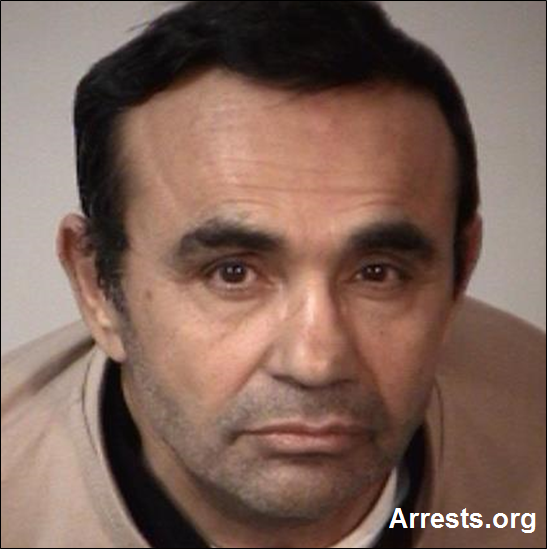
Lebanese national Abd al-Menhem Qubaysi is a U.S.-designated fundraiser and facilitator for Hezbollah based in Côte d’Ivoire. Qubaysi reportedly helped to establish a Hezbollah foundation in Côte d’Ivoire to recruit members and raise money for the terror group. The U.S. Department of the Treasury designated Qubaysi as a Specially Designated Global Terrorist under Executive Order 13224 in May 2009.“Country Reports on Terrorism 2009: Chapter 2. Country Reports: Africa Overview,” U.S. Department of State, August 5, 2010, http://www.state.gov/j/ct/rls/crt/2009/140883.htm.
According to the U.S. Department of the Treasury, Qubaysi is the “personal representative” of Hassan Nasrallah, the Hezbollah Secretary General.“2010 International Narcotics Control Strategy Report (INCSR)—Volume II:Money Laundering and Financial Crimes Database—Comoros through India,” U.S. Department of State, May 4, 2010, http://www.state.gov/j/inl/rls/nrcrpt/2010/database/141516.htm. Qubaysi communicates with Hezbollah leaders and has hosted senior Hezbollah officials visiting Côte d'Ivoire in fund-raising efforts.“Treasury Targets Hizballah Network in Africa,” U.S. Department of the Treasury, May 27, 2009, , http://www.treasury.gov/press-center/press-releases/Pages/tg149.aspx.
In August 2009, Qubaysi was detained by Ivorian authorities as he landed after a flight from Lebanon. He was denied entry and returned to Lebanon. According to the International Institute for Counter-Terrorism, however, he was permitted to return to Côte d'Ivoire in 2010 after pressure from the Lebanese government.Dr. Ely Karmon, “The Iran/Hezbollah Strategic and Terrorist Threat to Africa,” International Institute for Counter-Terrorism, March 28, 2012, http://www.ict.org.il/Article.aspx?ID=1088.
- Abd-al-Munim al-Qubaysi
- Abd al Menhem Kobeissi
- Abd al Menhem Qubaysi
- Abd al Munhim Kubaysy
- Abdul Menhem Kobeissy
- Abdul Menhem Kobeissi
- Abdel Menhem Kobeissi“Treasury Targets Hizballah Network in Africa,” U.S. Department of the Treasury, May 27, 2009, http://www.treasury.gov/press-center/press-releases/Pages/tg149.aspx.
United States

The U.S. Department of the Treasury designated “Abd al-Menhem Qubaysi” as a Specially Designated Global Terrorist under Executive Order 13224 for his role as a Hizballah financier on May 27, 2009.“Treasury Targets Hizballah Network in Africa,” U.S. Department of the Treasury, May 27, 2009, http://www.treasury.gov/press-center/press-releases/Pages/tg149.aspx.
United States

The U.S. Department of the Treasury designated “Abd al-Menhem Qubaysi” as a Specially Designated Global Terrorist under Executive Order 13224 for his role as a Hizballah financier on May 27, 2009.“Treasury Targets Hizballah Network in Africa,” U.S. Department of the Treasury, May 27, 2009, http://www.treasury.gov/press-center/press-releases/Pages/tg149.aspx.
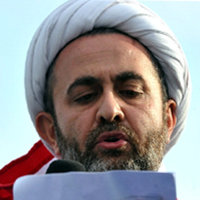
Hashem Safieddine was the U.S.-designated head of Hezbollah’s Executive Assembly, responsible for overseeing Hezbollah’s political, social, cultural, and educational activities. He was one of seven elected members of Hezbollah’s ruling Shura Council.Casey L. Addis and Christopher M. Blanchard, “Hezbollah: Background and Issues for Congress,” Congressional Research Service, January 3, 2011, 11, https://www.fas.org/sgp/crs/mideast/R41446.pdf; Jonathan Masters and Zachary Laub, “Hezbollah (a.k.a. Hizbollah, Hizbu’llah),” Council on Foreign Relations, January 3, 2014, http://www.cfr.org/lebanon/hezbollah-k-hizbollah-hizbullah/p9155. He was reportedly next in line to lead Hezbollah as the successor to Secretary-General Hassan Nasrallah, who was killed in an Israeli airstrike in September 2024.Dudi Cohen, “Nasrallah replacement chosen,” YNet, October 13, 2008, http://www.ynetnews.com/articles/0,7340,L-3608528,00.html. Safieddine died in an Israeli strike in Lebanon in October 2024, shortly after Israel killed Nasrallah.Michael Crowley, Aaron Boxerman, Gabby Sobelman and Ephrat Livni, “Israeli Military Says It Killed Top Hezbollah Leader,” New York Times, last updated October 23, 2024, https://www.nytimes.com/live/2024/10/22/world/israel-iran-lebanon-hezbollah.
Safieddine had been part of Hezbollah’s hierarchy since the group’s inception in 1982.“Beirut Marine Barracks Bombing Fast Facts,” CNN, October 18, 2017, https://www.cnn.com/2013/06/13/world/meast/beirut-marine-barracks-bombing-fast-facts/index.html. In the 1980s, Safieddine reportedly received leadership training in Iran and in 1992, he took over the Executive Assembly after its previous head, Hassan Nasrallah, became secretary-general.“INSIGHT - HZ - More details on reshuffling,” Wikileaks, March 11, 2013, https://wikileaks.org/gifiles/docs/10/1012276_insight-hz-more-details-on-reshuffling-.html. After accusing Israel of planning to assassinate Hezbollah’s leadership, Nasrallah named Safieddine as his successor in October 2008Roee Nahmias, “Nasrallah: Georgia lost because of Israel,” YNet, August 14, 2008, http://www.ynetnews.com/articles/0,7340,L-3582864,00.html. and two months later named Safieddine his successor.Dudi Cohen, “Nasrallah replacement chosen,” YNet, October 13, 2008, http://www.ynetnews.com/articles/0,7340,L-3608528,00.html.
Safieddine had spoken forcefully against Israel and the U.S. and has guaranteed Hezbollah’s resolve as it fights on behalf of Syrian President Bashar Assad in his country’s civil war.“Designated terrorist Hashem Safieddine says Hezbollah ‘will not leave Syria’,” Al Arabiya English, July 22, 2018, http://english.alarabiya.net/en/News/middle-east/2018/07/22/Blacklisted-Hezbollah-leader-says-Lebanese-militias-won-t-leave-Syria-.html. Safieddine was Nasrallah’s maternal cousin.“Syria and Iran Come to a Temporary Understanding over Hezbollah,” Stratfor, November 26, 2010, https://www.stratfor.com/analysis/syria-and-iran-come-temporary-understanding-over-hezbollah. His brother, Abdallah Safieddine, represented Hezbollah in Tehran.Michael Isikoff, “Bank accused of laundering drug money for Hezbollah,” NBC News, February 10, 2011, http://www.nbcnews.com/id/41512092/ns/world_news-mideast_n_africa/t/bank-accused-laundering-drug-money-hezbollah/#.VQnZhY7F9ks.
On October 7, 2023, Iran-backed and longtime Hezbollah ally Hamas launched a surprise attack on Israel, killing at least 1,200 people. Israel subsequently declared war against Hamas and launched a ground invasion of the Gaza Strip.“What is Hezbollah, the group backing Hamas against Israel?,” Reuters, October 31, 2024, https://www.reuters.com/world/middle-east/what-is-hezbollah-group-backing-hamas-against-israel-2023-10-30/; Lauren Frayer, “Israel revises down its death toll from the Oct. 7 Hamas attacks to about 1,200,” NPR, November 11, 2023, https://www.npr.org/2023/11/11/1212458974/israel-revises-death-toll-hamas-attacks-oct-7; Ibrahim Dahman and Abeer Salman, “Hamas announces ‘Al-Aqsa Storm,’ claims to have fired 5,000 rockets,” CNN, October 7, 2023, https://www.cnn.com/middleeast/live-news/al-aqsa-storm-militants-infiltrate-israel-after-gaza-rockets-10-07-intl-hnk/h_644aa5e5d02286051f5cc307e229566a. Hezbollah and Hamas both belong to the “Axis of Resistance,” an alliance of Iran-backed groups across the Middle East targeting Israel and U.S. interests in the region.“What is Hezbollah, the Lebanon-based group backing Hamas?,” Reuters, April 9, 2024, https://www.reuters.com/world/middle-east/what-is-hezbollah-group-backing-hamas-against-israel-2024-02-15/; “Iran’s allies in Iraq, Yemen threaten U.S. over intervention in Israel,” Reuters, October 10, 2023, https://www.reuters.com/world/senior-iraqi-political-figure-threatens-target-us-interests-if-it-backs-israel-2023-10-10/. On October 8, Hezbollah began a year-long campaign launching rockets, drones, and missiles toward northern Israel.“Israel, Hezbollah exchange artillery, rocket fire,” Reuters, October 8, 2023, https://www.reuters.com/world/middle-east/israel-strikes-lebanon-after-hezbollah-hits-shebaa-farms-2023-10-08/.
In response to ongoing Hezbollah attacks, on June 11, 2024, the Israel Defense Forces (IDF) launched a rocket attack on a Hezbollah command-and-control center in Jouaiyya in southern Lebanon. The airstrike killed Taleb Sami Abdullah, a veteran field commander, as well as three other Hezbollah operatives. According to the IDF, Abdullah was responsible for planning and carrying out numerous terror attacks against Israelis.David Gritten, “Hezbollah fires dozens of rockets into Israel after strike kills commander,” BBC News, July 12, 2024, https://bbc.com/news/articles/c6pp01dge3no. Safieddine spoke at Abdullah’s funeral on June 12, where he vowed Hezbollah would increase the strength and frequency of their attacks against Israel. By that evening, Hezbollah launched 215 projectiles toward Israel, targeting an Israeli military headquarters and a military air surveillance station. According to the Israeli military, there were no reports of casualties. It was one of Hezbollah’s largest attacks since October 2023.Euan Ward, “Hezbollah Launches Rocket Barrage After Israeli Strike Kills a Commander,” New York Times, June 12, 2024, https://www.nytimes.com/2024/06/12/world/middleeast/hezbollah-rockets-israel-strike.html.
In response to Hezbollah’s rocket barrage, on June 14, the IDF launched a rocket attack, targeting Safieddine’s home in Deir Qanoun in southern Lebanon. According to media sources, the strike targeted Safieddine, deputy Hezbollah leader Naim Qassem, and co-founder and former leader Subhi al-Tufayli. Shortly after, an unidentified Hezbollah spokesman claimed the building was empty when it was struck down.“Two killed and at least 20 injured in Israeli strike near Deir Qanoun,” L’Orient Today, June 14, 2024, https://today.lorientlejour.com/article/1417298/paramedic-killed-and-at-least-20-injured-in-israeli-strike-near-deir-qanoun.html.
On September 27, 2024, an Israeli airstrike killed Nasrallah in Beirut. After Nasrallah’s death, Safieddine and Qassem jointly ran Hezbollah. Safieddine was reportedly in line to formally take over, though Hezbollah did not officially confirm the transition. Those expectations were cut short, however. In early October, an IDF airstrike targeted a meeting of senior Hezbollah leaders in Beirut. Israeli officials suspected Safieddine had died in the strike but did not confirm the killing until October 22.Michael Crowley, Aaron Boxerman, Gabby Sobelman and Ephrat Livni, “Israeli Military Says It Killed Top Hezbollah Leader,” New York Times, last updated October 23, 2024, https://www.nytimes.com/live/2024/10/22/world/israel-iran-lebanon-hezbollah. Hezbollah confirmed Safieddine’s death on October 23.“Hezbollah’s Hashem Safieddine, heir apparent to Nasrallah, killed in Israeli attack, group says,” Reuters, October 23, 2024, https://www.reuters.com/world/middle-east/hezbollahs-hashem-safieddine-heir-apparent-nasrallah-killed-israeli-attack-group-2024-10-23/.
- Hashem Safi al-DinDudi Cohen, “Nasrallah replacement chosen,” YNet, October 13, 2008, http://www.ynetnews.com/articles/0,7340,L-3608528,00.html.
- Hashem Safi a-DinZohar Blumenkrantz, Irit Rosenblum, Amos Harel, and Avi Issacharoff, “Lebanon army on alert after reported IDF build-up on border,” Haaretz, August 10, 2009, http://www.haaretz.com/print-edition/news/lebanon-army-on-alert-after-reported-idf-build-up-on-border-1.281701.
- Hashim Safi al DinCasey L. Addis and Christopher M. Blanchard, “Hezbollah: Background and Issues for Congress,” Congressional Research Service, January 3, 2011, https://www.fas.org/sgp/crs/mideast/R41446.pdf.
- Hashim Safi Al-DinLarbi Sadiki, “Hezbollah and the Arab Revolution,” Al Jazeera, June 21, 2011, http://www.aljazeera.com/indepth/opinion/2011/06/2011619134113577322.html.
- Hashim Safieddine“Lebanon: Hezbollah’s Reshuffle,” Stratfor, April 25, 2008, https://www.stratfor.com/analysis/lebanon-hezbollahs-reshuffle.
United States

The U.S. Department of State lists Hashem Safieddine as a Specially Designated Global Terrorist under Executive Order 13224 in May 2017.“State Department Terrorist Designations of Hashem Safieddine and Muhammad al-Isawi,” U.S. Department of State, May 19, 2017, https://www.state.gov/r/pa/prs/ps/2017/05/270982.htm.
Saudi Arabia

The Kingdom of Saudi Arabia designated Hashem Safieddine as a terrorist under its Law of Terrorism Crimes and Financing and Royal Decree A/44 in May 2017.“State Department Terrorist Designations of Hashem Safieddine and Muhammad al-Isawi,” U.S. Department of State, May 19, 2017, https://www.state.gov/r/pa/prs/ps/2017/05/270982.htm.
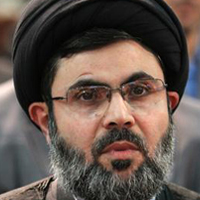
Ali Tajideen is a U.S.-designated financier and former military commander for Hezbollah.“Treasury Targets Hizballah Financial Network,” U.S. Department of the Treasury, December 9, 2010, http://www.treasury.gov/press-center/press-releases/Pages/tg997.aspx. He serves as the managing partner of Tajco Company LLC through which he purchases and develops properties in Lebanon for Hezbollah.“Treasury Designates Hizballah’s Construction Arm,” U.S. Department of the Treasury, February 20, 2007, http://www.treasury.gov/press-center/press-releases/Pages/hp271.aspx. According to the U.S. Treasury Department, Ali Tajideen has provided funding for Hezbollah in cash bundles as large as $1 million.“Treasury Targets Hizballah Financial Network,” U.S. Department of the Treasury, December 9, 2010, http://www.treasury.gov/press-center/press-releases/Pages/tg997.aspx. He is believed to operate out of Lebanon.“Treasury Targets Hizballah Financial Network,” U.S. Department of the Treasury, December 9, 2010, http://www.treasury.gov/press-center/press-releases/Pages/tg997.aspx.
Tajideen reportedly owns and operates several U.S.-designated companies alongside his brothers, business partners, and fellow Hezbollah financiers Kassim and Hussain Tajideen.“Treasury Targets Hizballah Financial Network,” U.S. Department of the Treasury, December 9, 2010, http://www.treasury.gov/press-center/press-releases/Pages/tg997.aspx. Kassim and Hussain have also been designated by the United States.“Treasury Targets Hizballah Financial Network,” U.S. Department of the Treasury, December 9, 2010, http://www.treasury.gov/press-center/press-releases/Pages/tg997.aspx. Tajideen is also a “major player” for Jihad Al Bina, a Hezbollah-operated construction company that was designated by the U.S. in 2007.“Treasury Designates Hizballah’s Construction Arm,” U.S. Department of the Treasury, February 20, 2007, http://www.treasury.gov/press-center/press-releases/Pages/hp271.aspx.
In the 2010 statement announcing the designation of the Tajideen brothers and their network of businesses including Tajco and Congo Futur, the Department of Treasury noted that “[a]s of mid-2007, the Tajideen brothers were running cover companies in the food and diamond trade for [Hezbollah].” In a statement accompanying the announcement, former Undersecretary for Terrorism and Financial Intelligence Stuart Levey added that “Ali and [Hussain] Tajideen’s multinational network…generates millions of dollars in funding and secures strategic geographical strongholds for [Hezbollah].”“Treasury Targets Hizballah Financial Network,” U.S. Department of the Treasury, December 9, 2010, http://www.treasury.gov/press-center/press-releases/Pages/tg997.aspx.
Companies owned or operated by the Tajideen brothers include Tajco, Kairaba Supermarket, Congo Futur, Ovlas Trading, Golfrate Holdings, and Grupo Arosfran, according to the U.S. Treasury.“Treasury Targets Hizballah Financial Network,” U.S. Department of the Treasury, December 9, 2010, http://www.treasury.gov/press-center/press-releases/Pages/tg997.aspx. His brother Hussain was expelled from Gambia in early June 2015 for his alleged ties to Hezbollah.“Gambia expels Lebanese businessman accused of Hezbollah ties,” Reuters Africa, June 2, 2015, http://af.reuters.com/article/drcNews/idAFL5N0YO49P20150602. In March 2017, his brother Kassim was arrested at the Casablanca airport in Morocco and extradited to the U.S. Kassim will face trial in Washington, D.C., on terror-related charges including conspiracy, fraud, and money-laundering while evading U.S. sanctions.“United States of America v. Kassim Tajideen,” U.S. District Court for the District of Columbia, March 7, 2017, 1, https://www.justice.gov/usao-dc/press-release/file/952066/download.
- Ali Taj al Din
- Ali Tajeddine
- Ali Mohammad Abed Al-Hassan Tajeddin
- Ali Mohammad Abdel Hassan Tajeddin
- Ali Mohamed Tageddine“Treasury Targets Hizballah Financial Network,” U.S. Department of the Treasury, December 9, 2010, http://www.treasury.gov/press-center/press-releases/Pages/tg997.aspx.
United States

The U.S. Department of the Treasury designated Ali Tajideen as a Specially Designated Global Terrorist pursuant to Executive Order 13224 on December 9, 2010.“Treasury Targets Hizballah Financial Network,” U.S. Department of the Treasury, December 9, 2010, http://www.treasury.gov/press-center/press-releases/Pages/tg997.aspx.

Hussain Tajideen is a U.S.-designated fundraiser for Hezbollah and prominent Hezbollah supporter.“Treasury Targets Hezbollah Financial Network,” U.S. Department of the Treasury, December 9, 2010, http://www.treasury.gov/press-center/press-releases/Pages/tg997.aspx. According to a 2010 U.S. Treasury designation, Hussain and his brothers, Ali and Kassim Tajideen, own a network of businesses from which they direct tens of millions of dollarsDavid Lewis, “Insight: U.S. and allies target Hezbollah financing, ties in Africa,” Reuters, September 20, 2013, http://www.reuters.com/article/2013/09/20/us-syria-crisis-hezbollah-africa-insight-idUSBRE98J04L20130920. to Hezbollah.“Treasury Targets Hezbollah Financial Network,” U.S. Department of the Treasury, December 9, 2010, http://www.treasury.gov/press-center/press-releases/Pages/tg997.aspx. Hussain reportedly fundraised for Hezbollah from inside Gambia until Gambian government expelled him on “profiteering” charges in June 2013. Hussain found his way back into Gambia, but was expelled in early June 2015 for his alleged ties to Hezbollah.“Gambia expels Lebanese businessman accused of Hezbollah ties,” Reuters Africa, June 2, 2015, http://af.reuters.com/article/drcNews/idAFL5N0YO49P20150602. It is unclear where he currently resides.David Lewis, “Insight: U.S. and allies target Hezbollah financing, ties in Africa,” Reuters, September 20, 2013, http://www.reuters.com/article/2013/09/20/us-syria-crisis-hezbollah-africa-insight-idUSBRE98J04L20130920.
With the funds procured from one of their businesses, “Tajco Company LLC,” the Tajideen brothers have purchased and developed properties in Lebanon for use by Hezbollah. As of March 2006, Hussain reportedly served as the managing director and owned 50 percent of the Tajco Ltd branch in Banjul, Gambia.“Treasury Targets Hezbollah Financial Network,” U.S. Department of the Treasury, December 9, 2010, http://www.treasury.gov/press-center/press-releases/Pages/tg997.aspx.
In the 2010 statement announcing the designation of the Tajideen brothers and their network of businesses including Tajco and Congo Futur, the Department of Treasury noted that “[a]s of mid-2007, the Tajideen brothers were running cover companies in the food and diamond trade for [Hezbollah].” In a statement accompanying the announcement, former Undersecretary for Terrorism and Financial Intelligence Stuart Levey added that “Ali and [Hussain] Tajideen’s multinational network generates millions of dollars in funding and secures strategic geographical strongholds for [Hezbollah].”“Treasury Targets Hizballah Financial Network,” U.S. Department of the Treasury, December 9, 2010, http://www.treasury.gov/press-center/press-releases/Pages/tg997.aspx.
Companies owned or operated by the Tajideen brothers include Tajco, Kairaba Supermarket, Congo Futur, Ovlas Trading, Golfrate Holdings, and Grupo Arosfran. According to the U.S. Treasury, these businesses operate in Gambia, Lebanon, Sierra Leone, the Democratic Republic of Congo, Angola, and the British Virgin Islands.“Treasury Targets Hezbollah Financial Network,” U.S. Department of the Treasury, December 9, 2010, http://www.treasury.gov/press-center/press-releases/Pages/tg997.aspx.
In March 2017, Hussain’s brother Kassim was arrested at Casablanca airport, Morocco, and extradited to the U.S. He will face trial in Washington, D.C., on terror-related charges including conspiracy, fraud, and money-laundering while evading U.S. sanctions.“United States of America v. Kassim Tajideen,” U.S. District Court for the District of Columbia, March 7, 2017, 1, https://www.justice.gov/usao-dc/press-release/file/952066/download.
- Husayn Tajideen
- Husayn Taj al-Din
- Hajj Hussein Tajidine
- Hussein Tajideen“Treasury Targets Hezbollah Financial Network,” U.S. Department of the Treasury, December 9, 2010, http://www.treasury.gov/press-center/press-releases/Pages/tg997.aspx.
United States

The U.S. Department of the Treasury designated Hussain Tajideen as a Specially Designated Global Terrorist pursuant to Executive Order 13224 on December 9, 2010.“Treasury Targets Hezbollah Financial Network,” U.S. Department of the Treasury, December 9, 2010, http://www.treasury.gov/press-center/press-releases/Pages/tg997.aspx.

Ashraf Muhammad Yusuf Uthman Abd al-Salam, a 31-year-old Jordanian national, is a financial supporter of the Nusra Front, al-Qaeda, and al-Qaeda in Iraq (AQI). “Security Council Al-Qaida Sanctions Committee Adds Four Names to its Sanctions List,” United Nations Security Council, January 23, 2015, http://www.un.org/press/en/2015/sc11750.doc.htm. He has been fighting in Syria since early 2014, presumably with the Nusra Front. “Security Council Al-Qaida Sanctions Committee Adds Four Names to its Sanctions List,” United Nations Security Council, January 23, 2015, http://www.un.org/press/en/2015/sc11750.doc.htm. Al-Salam has planned, transferred, or aided in the transfer of hundreds of thousands of dollars to AQI, core al-Qaeda, and the Nusra Front. Al-Salam has also enabled Nusra Front fighters to receive al-Qaeda training, and has helped to equip the Nusra Front with explosives. “Treasury Designates Twelve Foreign Terrorist Fighter Facilitators,” U.S. Department of the Treasury, September 24, 2014, http://www.treasury.gov/press-center/press-releases/Pages/jl2651.aspx.
The U.S. Department of the Treasury designated al-Salam a Specially Designated Global Terrorist pursuant to Executive Order 13224 in September 2014. “Treasury Designates Twelve Foreign Terrorist Fighter Facilitators,” U.S. Department of the Treasury, September 24, 2014, http://www.treasury.gov/press-center/press-releases/Pages/jl2651.aspx. In January and February 2015, the U.N. and the EU designated al-Salam an individual associated with al-Qaeda. “European Commission,” Official Journal of the European Union, February 2, 2015, http://hb.betterregulation.com/external/Notice 2015_C 38_09.pdf; “Security Council Al-Qaida Sanctions Committee Adds Four Names to its Sanctions List,” United Nations Security Council, January 23, 2015, http://www.un.org/press/en/2015/sc11750.doc.htm.
- Ashraf Muhammad Yusif 'Uthman 'Abd-al-Salam
- Ashraf Muhammad Yusuf 'Abd-al-Salam
- Ashraf Muhammad Yusif 'Abd al-Salam
- Ashraf Muhammad Abd al-Salam
- Khattab
- Ibn al-Khattab “Security Council Al-Qaida Sanctions Committee Adds Four Names to its Sanctions List,” United Nations Security Council, January 23, 2015, http://www.un.org/press/en/2015/sc11750.doc.htm; “HM Treasury- Financial Sanctions Notice,” Government of the United Kingdom, February 4, 2015, https://www.gov.uk/government/uploads/system/uploads/attachment_data/file/401364/AQ_Notice_4_new_individuals.pdf.
United Nations Security Council

On January 23, 2015, the U.N. Security Council added Ashraf Muhammad Yusuf Uthman Abd al-Salam to the al-Qaeda Sanctions List of individuals and entities subject to assets freeze, travel ban, and arms embargo pursuant to Security Council resolution 2083 (2012). “Security Council Al-Qaida Sanctions Committee Adds Four Names to its Sanctions List,” United Nations Security Council, January 23, 2015, http://www.un.org/press/en/2015/sc11750.doc.htm.
The European Union
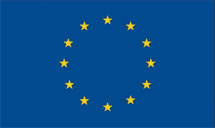
On February 4, 2015, the EU designated Ashraf Muhammad Yusuf Uthman Abd al-Salam as an individual associated with al-Qaeda pursuant to Council Regulation 881/2002. “European Commission,” Official Journal of the European Union, February 2, 2015, http://hb.betterregulation.com/external/Notice 2015_C 38_09.pdf; “HM Treasury- Financial Sanctions Notice,” Government of the United Kingdom, February 4, 2015, https://www.gov.uk/government/uploads/system/uploads/attachment_data/file/401364/AQ_Notice_4_new_individuals.pdf.
United States

U.S. Department of the Treasury; September 24, 2014.
The U.S. Department of the Treasury designated Ashraf Muhammad Yusuf Uthman Abd al-Salam a Specially Designated Global Terrorist under Executive Order 13224 on September 24, 2014. “Treasury Designates Twelve Foreign Terrorist Fighter Facilitators,” U.S. Department of the Treasury, September 24, 2014, http://www.treasury.gov/press-center/press-releases/Pages/jl2651.aspx.

Stay up to date on our latest news.
Get the latest news on extremism and counter-extremism delivered to your inbox.